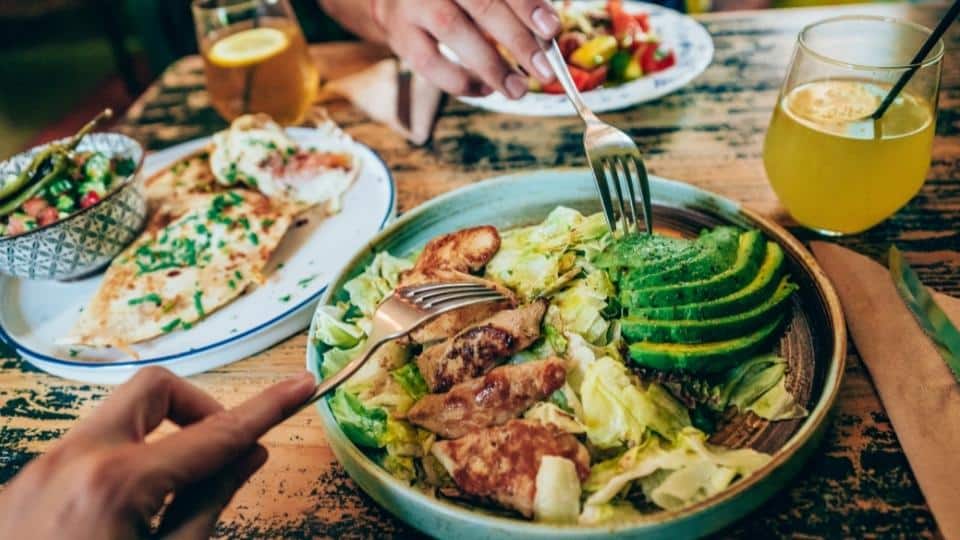Nutrition and eating habits influence the quality of sleep you are getting. Have you ever thought about what you had to eat and drink after a bad night of sleep?
There is a chance your dietary habits could be contributing to poor sleep quality. If you have issues with sleep frequently or occasionally, here are some do’s and don’ts for healthy sleep.
As with just about every factor of our health, there is a huge connection between what we eat and sleep duration and energy intake. Now we understand there are many lifestyle and health factors that contribute to how well you sleep. However, there is also scientifically sound evidence that we can positively impact our sleep through nutrition, even those with conditions like insomnia or sleep apnea.
So what are the foods to avoid and the nutrients one can prioritize to improve their sleep health?
Dont’s
Foods and Beverages to Avoid:
Caffeine – Eliminate caffeine-containing beverages and food consumption, especially after lunchtime. Even small amounts of caffeine can affect sleep quality.
Food and drinks with caffeine:
- Coffee, including Decaf, Sodas
- Green and Black Teas
- Foods labeled for “energy”
- Dessert foods and some candy – Chocolate and Mocha flavors
- Some processed snack foods like chips ad beef jerky
- Some supplements contain caffeine like green tea extract
Alcohol – Alcohol consumption is problematic for sleep. While alcohol does a good job at making you feel drowsy and sleepy it disrupts your REM sleep which effects your energy levels, concentration and hurts your overall health and wellness. Stay away from alcohol in the evening.
Spicy foods – Avoid spicy food before bed. Spicy food can make it difficult to lay down and rest comfortably. They have the potential to cause heart burn, and the acids can irritate the airway, also they can raise your body temperature making your body work harder instead of relaxing.
Sugary Processed foods – If you regularly eat processed foods high in sugar and low in fiber, they could be affecting your rest. Eat nutritional foods and reduce sugar and high calorie foods.
Large Meal before bed – Eating a large meal before bed can cause sleep trouble. Give your body time to digest dinner before sleep.
Do’s
Nutrition and Dietary Sleep Support Habits:
Small Snack – You may be surprised, but sometimes a small snack an hour before bed is helpful. your body needs fuel to repair and regenerate itself while you sleep. This helps if you tend to get hungry before bed, but some people sleep better by not consuming anything for several hours before bedtime. Find out what your body agrees with.
- Glass of milk
- Small bowl of oatmeal
- Whole grain toast
- Healthy Carbohydrates
Carbohydrates in Moderation – Carbohydrates are fuel for your metabolism, and they can help you sleep. If you’re eating a very low-carb diet and not sleeping well, don’t be afraid to add in some more fruit, whole grains, potatoes, or other balanced carbohydrates.
Regular Meal Schedule – Listen to your body’s cues when it’s time to eat. Remember, some people do well with fasting, but others don’t. Eating around the same time helps your body stay in sync with your circadian rhythm.
Nutrients for Health – Eating well-balanced meals with nutritional foods, protein, fats, and healthy carbs is supportive of your overall sleep quality and wellness. These nutrients that have been noted to support rest.
- Tryptophan
- Melatonin
- Calcium
- Carbohydrates
- Zinc
- Serotonin
- Antioxidants
With those tips in mind, just remember this, more nutrients = better digestion = better sleep.
For additional sleep support, take Pure Sleep a half hour prior to bedtime. Pure Hemp Botanicals Pure Sleep Softgels support your body’s natural sleep and wake rhythms to help you get a full night of sleep for optimal wellness. Our powerful CBD, CBN and Melatonin formulation is your ticket to a better night’s sleep.




